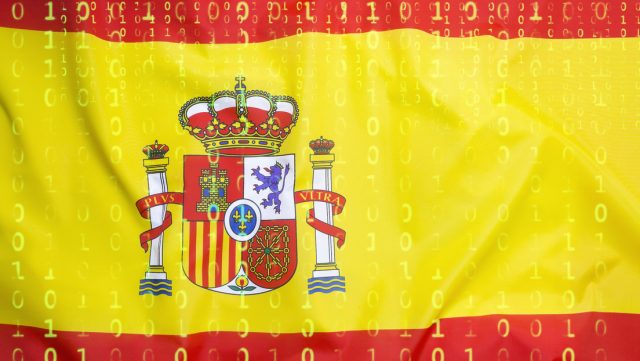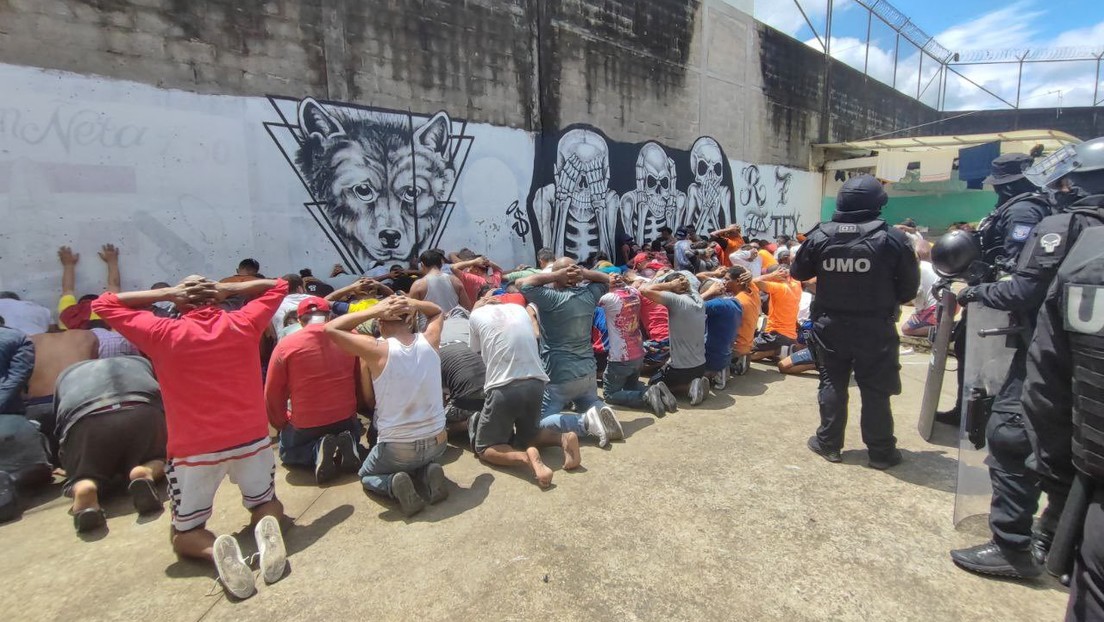The legislature in Spain has exploded after a massive espionage scandal of colossal dimensions came to light. The measures to stop the economic effects of the conflict in Ukraine, the legislative reforms, the electoral advances and any other issue have been obscured by the revelations that have been known during the last three weeks.
First it was Citizen Lab, an independent Canadian laboratory specializing in computer attacks, which warned that 65 Catalan politicians and independence leaders had been spied on with the Israeli Pegasus program. Later, the Government confirmed that the same software had infected the terminals of the President of the Government, Pedro Sánchez, and the Defense Minister, Margarita Robles, a year ago. The National Intelligence Center (CNI) confirmed that it was behind the espionage of at least 18 Catalan figures.
The open crisis is of such a dimension that its consequences are still unpredictable, but it could lead to a high-level diplomatic conflict with Morocco or put the legislature at risk when it is still halfway through its period, explains journalist Nuria López for RT.
How did the espionage scandal start?
The scandal was uncovered on April 18 when Citizen Lab made its report public. It stated that among the independence leaders spied on by the Israeli program were all the presidents of Catalonia since 2010, including the current one, Pere Aragonés.
In addition, it reported that among the infected mobiles were those of journalists, MEPs, civil society leaders, lawyers and also their relatives. Although it did not establish, with names and surnames, the person responsible, it did mention that the indications pointed to the Spanish State. The espionage had occurred between 2017 (the year in which the illegal self-determination referendum took place) and 2019.
Outrage in Catalonia
In Catalonia, the reaction was one of absolute indignation. Aragonés stated that «the massive espionage operation against the Catalan independence movement is an unjustifiable shame» and that it is «an extremely serious attack on fundamental rights and democracy».
For its part, the Spanish government denied the accusations through its spokesperson and Minister of Territorial Policy, Raquel Sánchez, who the following day stated that the current administration «has nothing to hide» and the national security law establishes «matters that have to be treated secretly”. «Conversations are not intervened if it is not under the protection of the law», said the spokeswoman.
The president and the defense minister are in ‘the eye’ of the espionage
The scandal took a new turn last Sunday, when the Minister of the Presidency, Félix Bolaños, informed the media that the phones of the President of the Government, Pedro Sánchez, and the Minister of Defense, Margarita Robles, had been infected with Pegasus in May 2021.
From Moncloa they pointed out that the interventions are «illegal», «external», «outside State agencies» and «do not have judicial authorization». The case has been prosecuted and is under summary secrecy, in addition, the judge has offered Sánchez and Robles the possibility of being present in the process.
One by one, the people that have been spied is known
But Sánchez and the Minister of Defense have not been the only members of the Executive who have been the object of computer attacks. Thus, at the beginning of this week it also emerged that the former Minister of Foreign Affairs, Arancha González Laya, had been the target of an attack of these characteristics in May 2021, when she was still in office. In this case, it has not been confirmed that the malware was Pegasus.
On Thursday it was the turn of the Minister of the Interior, Fernando Grande-Marlaska. After the discovery at the Sánchez and Robles terminals, all the members of the Executive delivered their terminals to the CNI so that they could be meticulously reviewed. Grande-Marlaska handed over two, the one he currently uses for his official communications and the one he used previously. It has been in the latter that traces of Pegasus have been found.
The right wing sectors and the Socialist Party (PSOE) veto an investigation commission
Given the scandal that the country is experiencing, several parliamentary groups called for the establishment of an investigation commission within the Congress of Deputies to clarify the espionage of the Catalan independence leaders.
However, this commission will not see the light of day after the Board of Spokespersons of Congress rejected its creation last Tuesday, thanks to the refusal of the Socialist Party (PSOE) and the right wing sectors represented in the Chamber, by the Partido Popular -PP- (Popular Party), and the ultra-right Vox and Ciudadanos (Citizens).
The Official Secrets Commission did push forward
The Commission that has come forward has been the Official Secrets Commission, which had not been constituted since 2018 due to the veto that the Partido Popular had established over some Basque and Catalan independence parties.
To do this, the president of the Congress, Meritxell Batet, had to modify the regulations beforehand, reducing the majority necessary to approve its constitution and its participants from two-thirds of the Chamber to a simple majority.
On Thursday, the meeting finally took place that brought together the president of Congress, the ten deputies elected to integrate it: representatives of the PSOE (Socialist Party), PP (Popular Party), Vox, Unidas Podemos (United We Can), Ciudadanos, EH-Bildu, Esquerra Republicana de Catalunya, Partido NacionalistaVasco (Nationalist Basque Party), Junts per Catalunya and Candidatura d’Unitat Popular, in addition to the person appearing, the director of the National Intelligence Center, Paz Esteban.
The CNI admits espionage to 18 Catalan leaders
Esteban reported that 18 people related to the Catalan independence movement had been spied on by the CNI, including the current president of the Catalan government, Pere Aragonés, when he was vice president. In addition, another 10 people were spied on, but their names appeared crossed out in the documentation that was offered to the ten deputies present.
The director of Spanish Intelligence explained the regulations that govern the body that she leads. According to those regulations, the CNI decides who to spy on following the guidelines received from the Government, while a judge of the Supreme Court must approve these operations, so the interventions of the mobile phones of the 18 Catalan leaders had judicial endorsement.
Call for the resignation of the Minister of Defense
Throughout this journey, one name has been at the center of the controversy, that of the Defense Minister, Margarita Robles. Many are the voices that have called for her resignation as head of the CNI, including some from the minority partner of the Government, Unidas Podemos (United We Can).
Robles has given controversial statements amid suspicions. One of the most scandalous was the one in which she rhetorically questioned: “what does a government have to do when someone declares independence?”, hinting that espionage had taken place.
Aiming at Morocco
On the other hand, the espionage to the members of the Spanish Government points to an external element. Although no member of the Sánchez Executive has dared to name the «external element’, and they speak of prudence, eyes turn to Morocco.
Pegasus infected the cell phones of the president and the ministers in May last year, at a time of maximum diplomatic crisis between Spain and the Alaouite kingdom, after the former welcomed the leader of the Polisario Front, Brahim Ghali, for humanitarian reasons, who is fighting for the self-determination and independence of Western Sahara, a territory over which Morocco claims sovereignty.
Morocco has already been identified on previous occasions as one of Pegasus’s clients, and it was even speculated that it had been used to spy on French targets, including the President of the Republic, Emmanuel Macron. However, there is no indication that this country could have any interest in monitoring the Catalan environment.
The legislature hanging by a thread
However, internally, the scandal and the greatest consequences lie in the espionage carried out in the Catalan sphere.
Esquerra Republicana de Catalunya (ERC) has described what happened as a huge scandal. In fact, last week they voted against validating in Congress the package of anti-crisis measures approved by the Government to alleviate the economic effects of the conflict in Ukraine, and the rise in energy prices, as a reaction to the lack of explanations surrounding the espionage case.
Although this package managed to get ahead thanks to the addition of EH-Bildu and the abstention of the PP (Popular Party) was even considered if it had been necessary, the support of ERC has been essential up to now for the Sánchez Executive to carry out its legislative proposals.
If the investiture bloc breaks down and Sánchez’s support continues to decline, the president could be forced to call early elections in the middle of the legislature, in a scenario that is not positive towards him.
There are still many unknowns about the espionage
While the espionage to members of the Government is still not resolved, the explanations of the director of the CNI on the Catalan case have not cleared up most of the uncertainties and a good number of questions hover over the Spanish society.
* 47 missing
If the CNI admits that it spied on 18 Catalan pro-independence personalities, who spied on the other 47 people up to the 65 that Citizen Lab denounced?
Esteban’s explanations leave up to four hypotheses open: that he did not offer all the information available to him; that other State agencies are making use of the spyware; that there are uncontrolled State forces that operate without judicial control; and the least likely of the three, that the espionage comes from another country.
* Who are the ten names that were crossed out?
In addition, among the documentation that Esteban delivered to the ten deputies of the Secrecy Commission, there were 10 names crossed out. Who are they? Do they correspond to some of the other 47 reported by the Canadian laboratory?
There is also the question of whether among those names would be those of some people who could report more legal problems, as is the case of deputies, MEPs or people residing abroad, such as the former president of Catalonia, Carles Puigdemont.
* Can you spy on a person ‘in office’?
The current president of Catalonia, Pere Aragonés, was spied on when he was vice president and therefore he was already in office. In Spain, to investigate a person in office, it is necessary that the Chamber to which he belongs authorizes it. It is a formality because the authorization is always approved, but in this case it was not carried out.
So the question arises as to whether a person in office can be investigated, in this case spied on as a synonym, without the approval of the corresponding Parliament, or whether it would be an illegal action.



